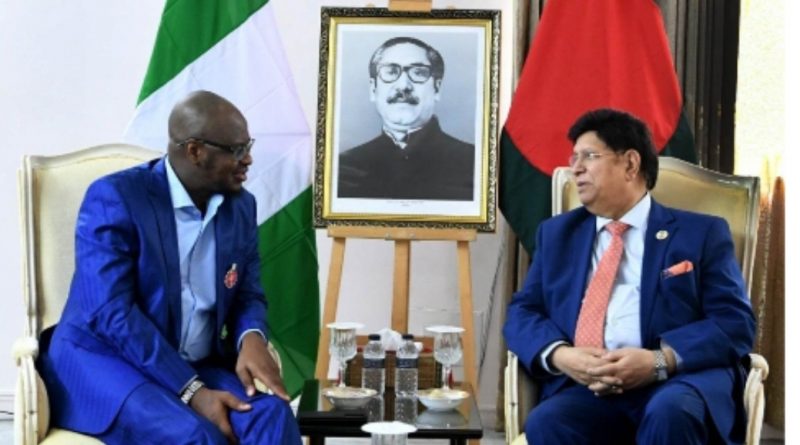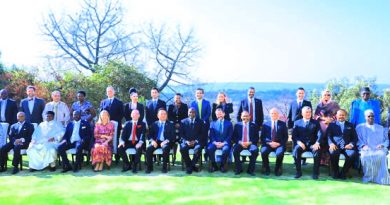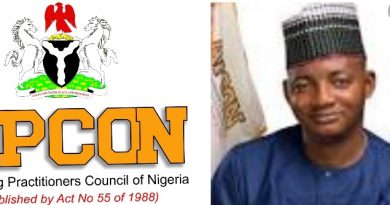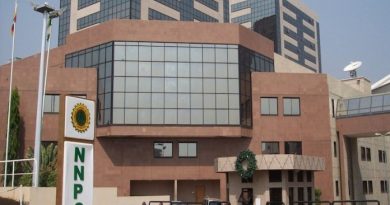The Nigeria-Bangladesh Bilateral Relation: Leveraging the Global South Cooperation Framework for Industrialization and Economic Diversification in Nigeria.
Diplomatic Correspondent
In an era of increasing globalization, countries are recognizing the importance of collaboration and cooperation to achieve their economic development goals. Nigeria, with its quest for industrialization and economic diversification, can leverage the Global South Cooperation Framework to forge partnerships and foster mutually beneficial outcomes.
This article will delve into Nigeria’s evolving bilateral relationship with Bangladesh, highlighting how both nations can harness the Global South Cooperation Framework to drive industrialization, promote economic diversification, and foster sustainable development, all while emphasizing the significance of mutual respect.Understanding the Global South Cooperation Framework (250 words):The Global South Cooperation Framework is a platform that brings together developing nations to share experiences, knowledge, and resources for mutual development. It emphasizes South-South cooperation, solidarity, and the exchange of best practices. By engaging in this framework, Nigeria can tap into the expertise and experiences of countries like Bangladesh, which have successfully achieved industrialization and economic diversification. Nigeria’s Quest for Industrialization and Economic Diversification: Nigeria has long recognized the need to move beyond its dependence on oil and diversify its economy. Industrialization is a key driver of economic growth, job creation, and poverty reduction. By promoting manufacturing, innovation, and technological advancements, Nigeria can enhance its competitiveness in the global market and reduce its vulnerability to external shocks. The Nigeria-Bangladesh bilateral relationship has been growing steadily, with both countries recognizing the potential for collaboration in various sectors.
The Climax of the bilateral engagement peaked in 2023 when the Nigeria-Bangladesh Business and Technology Forum facilitated the epoch-making first Federal Government Digital Economy-focused delegation to Bangladesh led by the Minister of Communications and Digital Economy, Prof. Ibrahim Isa Pantami Ph.D., from January 12th to 17th, 2023. With Ambassador Bolaji Akinremi of the Department of Trade and Investment representing the Minister of Foreign Affairs and coordinating the mission, the elated and highly welcoming Bangladeshi government and the private sector led by the Federation of Bangladesh Chambers of Commerce and Industries (FBCCI), engaged in fruitful G2G and B2B meetings to set the tone for future business and trade relations.Bangladesh has made significant strides in industrialization, particularly in the textile and garment industry, which can provide valuable lessons and opportunities for Nigeria’s industrialization efforts.
The two countries can explore collaborations in areas such as agriculture, technology, ICT/Digital Economy, Pharmaceutical/Health, Jute and Jute products, Packaging and logistics, renewable energy, and infrastructure development amongst others.Nigeria can leverage the Global South Cooperation Framework to facilitate knowledge exchange programs and capacity-building initiatives for Industrialization. Knowledge Exchange and Capacity Building would enable Nigerian entrepreneurs, policymakers, and industrialists to learn from Bangladesh’s experiences in industrialization, including best practices, policies, and strategies.
Enhanced trade and investment cooperation between Nigeria and Bangladesh can drive industrialization and economic diversification. With a robust Trade and Investment Promotion, both countries can explore opportunities for bilateral trade, joint ventures, and technology transfer, especially in sectors where Bangladesh has a competitive advantage and Nigeria has the potential for growth.Bangladesh’s expertise in areas such as garment manufacturing, agriculture, and small and medium-sized enterprises (SMEs), can benefit Nigeria’s industrialization efforts in the areas of Technical Assistance and Skill Development.
Through technical assistance programs and skill development initiatives, Bangladesh can support Nigeria in developing the necessary capabilities to enhance industrial productivity and efficiency. Nigeria has a huge energy deficit, which has affected manufacturing, industrialization and overall economic growth.
In order to promote Economic Diversification and Sustainable Development, Renewable Energy and Climate Change Mitigation, Nigeria and Bangladesh can collaborate in the development and adoption of renewable energy solutions, as well as efforts to address climate change. Sharing experiences, technologies, and best practices can contribute to sustainable development and economic diversification.Agriculture and Food Security are key areas of national wellbeing. Both countries have significant agricultural potential. Collaboration in agricultural research, technology transfer, and value chain development can boost productivity, improve food security, and create employment opportunities.Nigeria can leverage Bangladesh’s expertise in infrastructure development, particularly in areas such as transportation, logistics, and urban planning. Inland water connectivity, multi-level/raised flyovers and digital economy. Collaboration in these areas can improve Nigeria’s connectivity, facilitate trade, and attract investments.In conclusion, the Global South Cooperation Framework provides an excellent opportunity for Nigeria to accelerate its industrialization and economic diversification efforts.
By strengthening its bilateral relation with Bangladesh and leveraging the knowledge, experiences, and resources available through the framework, Nigeria can forge a path toward sustainable development.
The evolving Nigeria-Bangladesh bilateral relationship, marked by mutual respect and beneficial outcomes, exemplifies the potential for collaboration and the power of South-South cooperation. With a focus on knowledge exchange, trade promotion, technical assistance, and sustainable development, Nigeria can navigate its journey towards industrialization, economic diversification, and improved socio-economic well-being.




